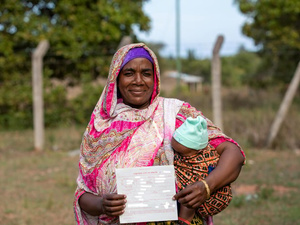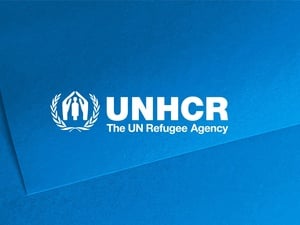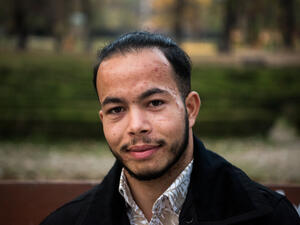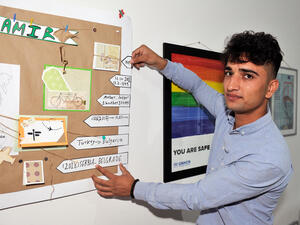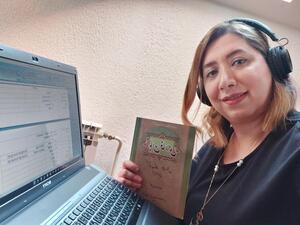Kosovo Crisis Update
Kosovo Crisis Update
The U.N. Secretary-General's Deputy Representative for Humanitarian Affairs in Kosovo, Dennis McNamara, on Wednesday called on returning Kosovar refugees to prevent retaliatory attacks against the Serb and Roma populations in the region.
Following a wave of reprisals against the remaining Serb and Roma minorities throughout Kosovo, McNamara also called on KFOR to continue its efforts to step up security measures to protect these people under Security Council Resolution 1244, which established the international presence in Kosovo.
"Over the past two weeks, there have been increasing reports of intimidation and violent attacks directed against the Serb and Roma minorities in Kosovo," said McNamara, whose functions include the issue of minorities.
McNamara is also UNHCR Special Envoy for the Former Yugoslavia and Albania.
"Many of those targeted are elderly people who do not present a threat to anyone," he said. "Serbs are now leaving Kosovo because they feel insecure. It is imperative that we do not solve one refugee problem and create another one. The refugee cycle in the Balkans has to be ended."
Among those targeted are some 5,000 Serb refugees from the conflicts in Bosnia and Herzegovina and Croatia. Their situation is particularly disturbing, as this is the second time they face being violently uprooted.
"While we are doing everything we can to help these people on the ground as well as to encourage minorities to remain, what they first require is physical security," said McNamara. "This is beyond the capacity of international humanitarian organizations, so we need a continued robust response from KFOR, as well as the re-establishment of the key institutions for law and order in Kosovo."
McNamara is holding meetings with various Albanian community leaders in an effort to get their cooperation in halting attacks and harassment of minorities. He will also discuss the issue of minorities with UN High Commissioner for Human Rights, Mary Robinson, who is visiting Kosovo today.
Meeting of Friends
Assistant High Commissioner Søren Jessen-Petersen is attending a meeting in New York today of the "Friends of Kosovo" called by UN Secretary-General Kofi Annan. The group was formed during the initial phase of implementation of the United Nations Mission in Kosovo (UNMIK).
In his report to the Security Council 12 June, Annan said he would consult regularly with governments and organizations who are in a position to assist him in his implementation of Resolution 1244 on Kosovo.
Participants include Canada, China, Finland, France, Germany, Italy, Japan, the Netherlands, the Russian Federation, Turkey, the United Kingdom, the United States of America, the European Union, the Organization for Security and Cooperation in Europe and the Organization of the Islamic Conference.
Repatriation
Hundreds of refugees in camps in Durres and Elbasen boarded buses and trains on Wednesday at the start of UNHCR's organized repatriation from Albania to Kosovo. The trip north is expected to take as long as 10 hours from the camps in central Albania. The refugees will travel back into Kosovo on Thursday.
UNHCR expects around 800 refugees to join the first organized repatriation from Albania. At 10 a.m. around 300 refugees boarded a train in Durres bound for Mejda, where they will overnight before crossing the border into Kosovo on Thursday. About 500 others will travel to Kukes by bus from Elbasen Wednesday morning. They will spend the night in Kukes before proceeding on to Kosovo.
Organized repatriation went into its third straight day from the FYR of Macedonia. Around 400 refugees left for Kosovo on Wednesday, bound for Pristina and Urosevac. On Monday, 332 refugees went back home with UNHCR and on Tuesday 322.
Kosovo
UNHCR and its NGO partners are steadily building up distribution networks in many areas of Kosovo, two weeks after the resumption of relief operations in the Serbian province.
Catholic Relief Services, UNHCR's main partner in the Prizren region, reports that since 23 June it has distributed 234 metric tons of food in 38 villages and towns with around 85,000 people. Three-day ration packages were handed out. CRS also distributed UNHCR items - 11,804 hygienic packs, 5,500 blankets, 690 mattresses and 140 tents.
UNHCR mobile teams have now completed assessments in 45 villages in the Prizren region.
In the western town of Pec, UNHCR has so far distributed 1,000 tents for homeless Kosovars.
UNHCR continues to receive reports of Serbs and other minority groups forced to leave their homes. In one neighbourhood of Pristina alone, UNHCR staff reported seeing seven houses burning Tuesday night.
Pursuing a policy of helping and protecting minority groups, a UNHCR team visited a school at Kosovo Polje on the outskirts of Pristina on Tuesday, where some 3,500 displaced minorities, Roma and the people known in Kosovo as "Egyptians," are currently housed. They were in 20 classrooms, a small cellar and 10 tents. There was very little food and the living conditions were dire, with over 40 people per classroom and at least 20 per tent.
An average of 50 to 100 persons arrive every day at the school from various areas. While the team was at Kosovo Polje, it saw several wagonloads of persons arriving. UNHCR was told that up to 50 per day are also leaving on trains to Serbia and Bosnia.
The school is located in an area between a previously Serb-inhabited neighbourhood and an Albanian sector. Most of the Serbs have left. In several areas, returning Kosovar refugees are reported to be occupying and evicting tenants from Serb and Roma houses. Several of the displaced minority men bore signs of serious injuries, from reported attacks by ethnic Albanians.
ICRC has been regularly visiting this group since they began arriving there ten days ago. The Yugoslav Red Cross has given them a small quantity of flour, tents, sleeping bags and mattresses. UNHCR and other health workers plan to visit the area regularly.
Albania
Even as UNHCR prepared for its first organized repatriation from Albania, refugees continued to go back on their own to Kosovo, hiring buses and minivans.
On Tuesday, 14,300 refugees went back through the Morini crossing, bringing the total count of spontaneous returnees to 272,900 since 15 June. Around 172,000 refugees remain in Albania.
Among the returnees were 125 refugees from Camp Hope in Fier, who arrived at the Kukes II camp. Most of them went onward to Kosovska Mitrovica by bus.
Even though very few refugees remain in Kukes, the UAE camp site will remain open for refugees who wish to stay for a longer period in Kukes. Kukes II will serve as a transit centre and as the main logistics base for transport assets of AFOR and the Danish Refugee Council, engaged in the organized repatriation movements.
A mine awareness presentation was conducted on Tuesday by Belgian A-FOR troops in the Kukes II camp for the transitees and the resident population, and further sessions are scheduled.
FYR of Macedonia
A total of 409 refugees joined UNHCR's repatriation convoy on Wednesday from the FYR of Macedonia - 196 heading for Urosevac and 213 for Pristina.
On Tuesday, five buses carried 177 refugees to Pristina from Stenkovec 1 and 2 and Cegrane, another five buses transferred 145 refugees to Urosevac from Stenkovec 1 and 2, Bojane and Radusa camps. They all reached to their destinations safely, with Mother Teresa providing them with food, water and basic aid items.
So far, 1,063 refugees have gone home with UNHCR since organized returns began on Monday.
Spontaneous departures for Kosovo also continued. On Tuesday, around 7,000 refugees went back through the border crossings at Blace, Jazince and Tabanovce.
Continuing a supply pipeline from Skopje to Kosovo, 23 trucks reached Urosevac, Prizren, Pec and Pristina on Tuesday, carrying tents, blankets, hygienic parcels, blankets and mattresses. Skopje received on Tuesday shipments of plastic sheeting (320), blankets (11,490) and mattresses (6,840).
Republic of Montenegro
A total of 3,400 Kosovars returned home from Montenegro on Tuesday, bringing the overall returns over the past two weeks to 33,600.
In the meantime, Serbs and other non-Albanians from Kosovo continued to arrive in Montenegro, with 70 entering on Tuesday.


